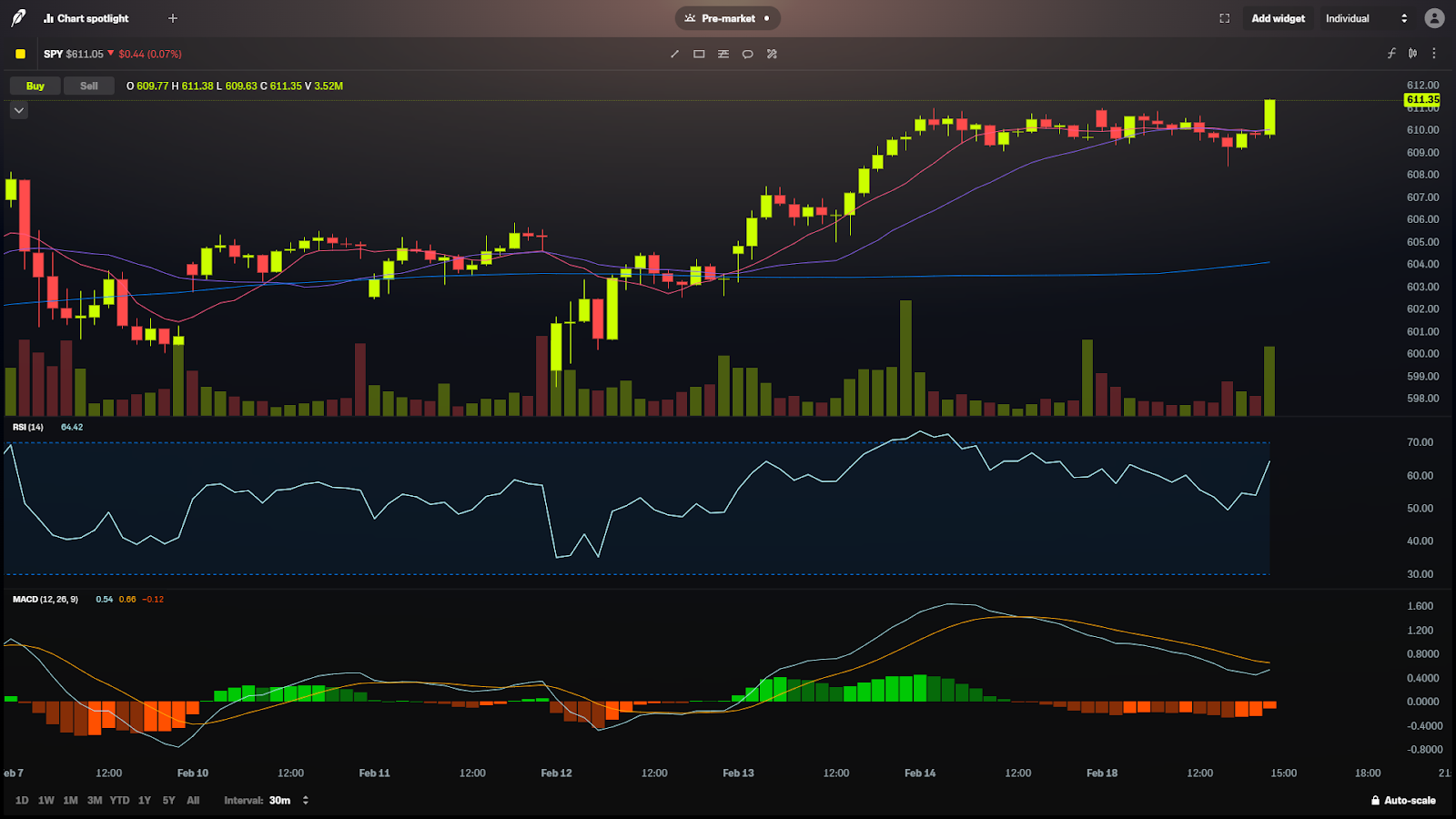Understanding the Stock Market: A Simple Guide

The stock market is key to the global financial system. It drives economic growth and creates wealth. Many find it complex, but knowing the basics is crucial for investors and anyone curious about the economy. This guide will cover what the stock market is, how it works, and why it’s important.
What is the Stock Market?
The stock market is where people buy and sell shares of publicly traded companies. It’s a network of exchanges focused mainly on stocks, also known as equities. The stock market has two main purposes:
- Companies raise capital by selling ownership stakes to the public.
- Investors share in the financial success of these companies.
“Stock market” often refers to major indexes like the S&P 500, Dow Jones Industrial Average, or NASDAQ Composite. These indexes track a select group of stocks and measure market performance.
A Brief History of Stock Markets
The stock market concept began in the 1600s. The Dutch East India Company was the first to allow public share purchases. The Amsterdam Stock Exchange, established in 1602, is the oldest modern stock exchange. In the U.S., the New York Stock Exchange (NYSE) started in 1792 when 24 stockbrokers signed the Buttonwood Agreement on Wall Street.
Over time, stock markets have changed significantly. The late 20th century saw electronic trading’s rise, making trades faster and easier. Today, major exchanges exist worldwide, including in New York, London, Tokyo, and Shanghai.
How Does the Stock Market Work?
The stock market is a regulated place where buyers and sellers trade shares of publicly listed companies. Here are the key components and processes:
1. Stock Exchanges
Stock exchanges are organized marketplaces for buying and selling securities. The two largest U.S. exchanges are the NYSE and NASDAQ. They serve the same basic function but operate differently:
- The NYSE has a physical trading floor where brokers and specialists facilitate trades.
- The NASDAQ is an electronic exchange where trading occurs through a computer network.
2. Stocks and Shares
A stock represents partial ownership in a company. When you buy a share, you buy a small piece of that company. Companies issue stocks to raise capital for expansion, research, or paying off debt.
3. Buyers and Sellers
The stock market connects two main groups:
- Buyers: Investors looking to purchase shares, hoping the value will increase.
- Sellers: Shareholders wanting to sell their shares to realize gains or cut losses.
4. Brokers
Most individual investors can’t access the stock exchange directly. They need a broker. Brokers are licensed professionals or firms that carry out buy and sell orders. Many investors now use online discount brokers, which charge lower fees but offer less personalized service.
5. Market Makers
Market makers are essential for smooth stock market operations. These firms buy or sell a stock at publicly quoted prices. They ensure liquidity, making it easier for investors to buy or sell stocks quickly.
6. The Trading Process
When you order to buy or sell a stock, here’s what happens:
- You send your order to your broker.
- Your broker sends it to the right exchange.
- Your order matches with someone else’s buy or sell order.
- The trade completes, and you own the shares.
- The transaction finalizes, usually within two business days.
Key Stock Market Activities
There are three main activities in the stock market:
- Buying Stocks: Investors buy shares, hoping they will increase in value.
- Selling Stocks: Shareholders sell their shares to make a profit or limit losses.
- Issuing Stocks: Companies issue new shares to raise money through:
- Initial Public Offerings (IPOs): When a private company sells shares to the public for the first time.
- Secondary Offerings: When a public company issues more shares.
Understanding Stock Prices
Stock prices are determined by supply and demand. Various factors influence a stock’s price:
- Company Performance: News like earnings reports can affect stock prices.
- Economic Factors: Interest rates and inflation impact the overall market.
- Industry Trends: Changes in a sector influence related stock prices.
- Market Sentiment: Investor emotions drive stock prices up or down.
- Global Events: Political changes and natural disasters can impact stock prices.
Stock Market Indicators
Several indicators gauge the stock market’s health:
- Stock Market Indexes: These track specific groups of stocks. Popular indexes include:
- S&P 500, tracking 500 large U.S. companies
- Dow Jones Industrial Average, representing 30 large, publicly-owned companies
- NASDAQ Composite, focusing on technology companies
- Market Capitalization: This is the total value of a company’s outstanding shares.
- Trading Volume: This measures how many shares are traded over time.
- Volatility Indexes: The VIX, or “fear index,” measures expected market volatility.
Participants in the Stock Market
The stock market has various players:
- Individual Investors: Regular people investing to achieve financial goals.
- Institutional Investors: Large organizations like pension funds and mutual funds making significant investments.
- Market Makers: Professionals providing liquidity for buying and selling securities.
- Brokers: They execute trades for investors.
- Regulators: Government agencies ensuring fairness in the market, like the SEC in the U.S.
Types of Stock Market Analysis
Investors analyze stocks in different ways:
- Fundamental Analysis: This looks at a company’s financial health and growth prospects. Investors review metrics like earnings per share (EPS) and price-to-earnings (P/E) ratio.
- Technical Analysis: This focuses on price movement and volume trends. Analysts use charts to spot patterns that may indicate future price movements.
- Quantitative Analysis: This uses mathematical models to find investment opportunities.
Risks and Rewards of Stock Market Investing
The stock market offers growth potential but also carries risks:
Potential Rewards:
- Capital Appreciation: Your investments can increase in value.
- Dividend Income: Many stocks pay regular dividends.
- Portfolio Diversification: Stocks can diversify your investment strategy.
Potential Risks:
- Market Volatility: Stock prices can fluctuate, leading to losses.
- Company-Specific Risks: Individual stocks may underperform.
- Economic Risks: Recessions can impact overall market performance.
Stock Market Trends and Cycles
The stock market moves in cycles of growth and decline. To navigate this, investors can make savvy decisions:
- Bull Market: A phase where stock prices surge, driven by economic growth and investor enthusiasm.
- Bear Market: A stretch marked by falling prices, often reflecting economic issues and investor skepticism.
- Market Corrections: Temporary dips of 10% or more from recent peaks.
- Market Crashes: Sudden, steep drops that shock the market.
The Impact of Technology on the Stock Market
Technology has transformed the stock market:
- High-Frequency Trading: Computers execute many orders in seconds.
- Online Trading Platforms: These make it easier for individual investors to join the market.
- Real-Time Information: Investors access news and data instantly.
- Blockchain and Cryptocurrencies: These technologies influence traditional stock markets.
The Role of the Stock Market in the Economy
The stock market is crucial for the economy:
- Capital Formation: It lets companies raise funds to grow.
- Economic Indicator: It reflects how well the economy is doing.
- Wealth Creation: It helps individuals and institutions build wealth.
- Corporate Governance: Public companies must follow rules and answer to shareholders, promoting honesty.
Conclusion
The stock market is complex and constantly changing. It plays a vital role in the global economy. It offers many opportunities to build wealth, but carries risks. Understanding the stock market is crucial for potential investors and anyone wanting to grasp economic forces.
Whether you’re an experienced investor or just starting, keep learning and stay updated on market trends. This will help you make informed decisions. Remember, the stock market can build wealth, but having a strategy that fits your financial goals is essential.




